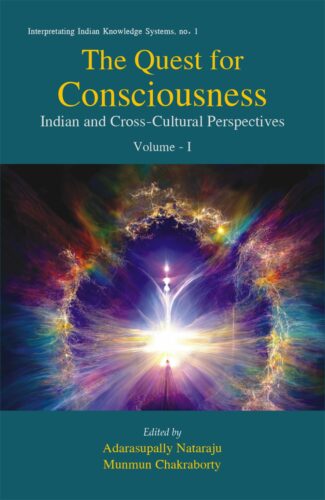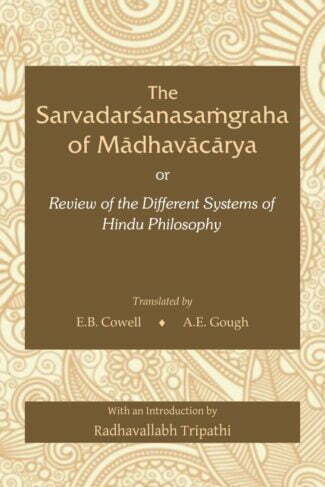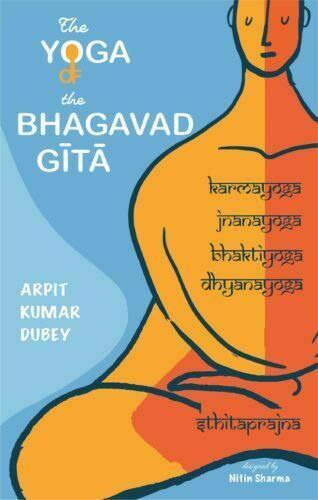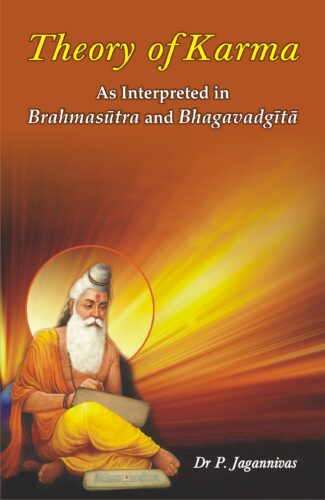Showing 241–250 of 292 results

This book discusses the quintessential aspects of George Santayana’s wide and comprehensive philosophy. Its critical and comparative discussions have taken place centring round the problems of Epistemology, Metaphysics, Aesthetics, Ethics and Religion, thereby making it all the more interesting.
This book discusses the quintessential aspects of George Santayana’s wide and comprehensive philosophy. Its critical and comparative discussions centre round the problems of Epistemology, Metaphysics, Aesthetics, Ethics and Religion. This makes it all the more interesting.
What is noteworthy about this book is that it shows how naturalism serves as a basis of the idealistic philosophy of George Santayana. Moreover, the illustrious part of this treatise is that essence, as discovered by Santayana by the doubting process, serves as the keynote of his whole philosophy.
The exposition of Santayana’s philosophy on the basis of the above two points is an outstanding feature of the present work. What is captivating about this book is that it shows how the natural gets reconciled with the ideal by making the former the ground of the latter.

The book addresses the main theme of the nature of consciousness from a wide-ranging stances and have also taken a step towards establishing a platform for an intense and critical study of Indian theories of consciousness
The book provides a platform to discuss and examine the subtle and complex issues related to the nature of consciousness, self, mental states and subjectivity from Indian and cross-cultural perspectives. It explores contemporary problems of consciousness and tries to find solutions from Indian philosophical traditions. The purpose is to understand how far the views and approaches of classical and contemporary Indian thinkers are relevant in contemporary consciousness studies. The book argues that great thinkers of Vedānta, Tantra, Sāṁkhya and Buddhism have done enormous works which can be explored, examined and enhanced even today for a better comprehension of the subjectivity and conscious experience.
The chapters of this present volume have thoroughly explored and examined many classical Indian theories of consciousness. Keeping in view the objectives of this volume, the contributors have made an effective effort to reflect critically on Indian theories to answer the contemporary problems. There are chapters discussing and examining the standpoints of Indian thinkers like Abhinavagupta, Utpala, Śaṅkara, Rāmānuja, Swāmī Vidyāraṇya, Nāgārjuna, Gautama and many more. On the other hand, there are chapters engaged in reappraising the philosophical positions of Kant, Hegel, Sartre, Chalmers, Searle, Dennett and other contemporary thinkers. The chapters of this volume have addressed the main theme from a wide-ranging stances and have also taken a step towards establishing a platform for an intense and critical study of Indian theories of consciousness.
The book is extremely beneficial for students and scholars interested in classical Indian philosophy and contemporary consciousness studies. It inspires more researchers to ponder upon the concept of consciousness and subjectivity from multiple dimensions.

This book is an interesting specimen of Hindu critical ability. It presents the synopsis of sixteen philosophical systems that were current in the fourteenth-century south India in their most important tenets and maintains the principal arguments by which their followers were endeavoured to maintain them.
The Sarvadarshanasamgraha of Madhavacharya is an interesting specimen of Hindu critical ability. The author herein presents the synopsis of sixteen Charvaka, Bauddha, Jaina, Ramanuja, Purnaprajna, Pashupata, Shaiva, Pratyabhijna, Raseshvara, Vaisheshika, Nyaya, Jaiminiya, Paniniya, Samkhya, Patanjala and Advaita philosophical systems current in the fourteenth-century south India in their most important tenets and maintains the principal arguments by which their followers were endeavoured to maintain them. In course of his sketches of these systems, Madhavacharya frequently explains at length obscure details of these different systems.
Sarvadarshanasamgraha presents all these Darshanas from the Vedantic point of view. These had attracted to their study the noblest minds in India throughout the medieval period of its history. There were numerous sects of Bauddha, Jaina, and Hindu philosophical systems and we come across many of them in this book.
This present retypeset edition is quite reader-friendly as we have made a few changes to this edition as value-adds and by incorporating the present-day diacritics.
This English translation of Sarvadarshanasamgraha must evoke keen interest among scholars of philosophy, and researchers and students of philosophy across the globe.

This book is an interesting specimen of Hindu critical ability. It presents the synopsis of sixteen philosophical systems that were current in the fourteenth-century south India in their most important tenets and maintains the principal arguments by which their followers were endeavoured to maintain them.
The Sarvadarshanasamgraha of Madhavacharya is an interesting specimen of Hindu critical ability. The author herein presents the synopsis of sixteen Charvaka, Bauddha, Jaina, Ramanuja, Purnaprajna, Pashupata, Shaiva, Pratyabhijna, Raseshvara, Vaisheshika, Nyaya, Jaiminiya, Paniniya, Samkhya, Patanjala and Advaita philosophical systems current in the fourteenth-century south India in their most important tenets and maintains the principal arguments by which their followers were endeavoured to maintain them. In course of his sketches of these systems, Madhavacharya frequently explains at length obscure details of these different systems.
Sarvadarshanasamgraha presents all these Darshanas from the Vedantic point of view. These had attracted to their study the noblest minds in India throughout the medieval period of its history. There were numerous sects of Bauddha, Jaina, and Hindu philosophical systems and we come across many of them in this book.
This present retypeset edition is quite reader-friendly as we have made a few changes to this edition as value-adds and by incorporating the present-day diacritics.
This English translation of Sarvadarshanasamgraha must evoke keen interest among scholars of philosophy, and researchers and students of philosophy across the globe.

This volume critically examines six epistemological theories of the Advaita school of Vedanta: pratyaksha (perception), upamana (comparison), anupalabdhi (non-cognition), anumana (inference), arthapatti (postulation) and shabda (testimony), highlighting the problems, concepts and theories of the Vedantins within the focus of modern Western thought.
This volume critically examines six epistemological theories of the Advaita school of Vedanta: pratyaksha (perception), upamana (comparison), anupalabdhi (non-cognition), anumana (inference), arthapatti (postulation) and shabda (testimony). To make the study smooth and easy, it deliberates on two other concepts prama (conceptions of knowledge) and pramana (methods of knowing) as these underlie all epistemological discussions.
The book highlights the problems, concepts and theories of the Vedantins within the focus of modern Western thought. The method adopted is one of critical analysis, comparison and evaluation. It also tries to formulate some important epistemological doctrines of Advaita Vedanta and show by some criticism that, if rightly understood, they are valuable contributions to the philosophy of the world.
The book, targeting sceptical students trained in Western philosophy and an imagined tribunal of Western philosophers, tries to make a case for Advaita Vedanta, and thus is expected to usher keen interest among the students, teachers and followers of Advaita Vedanta.

This volume critically examines six epistemological theories of the Advaita school of Vedanta: pratyaksha (perception), upamana (comparison), anupalabdhi (non-cognition), anumana (inference), arthapatti (postulation) and shabda (testimony), highlighting the problems, concepts and theories of the Vedantins within the focus of modern Western thought.
This volume critically examines six epistemological theories of the Advaita school of Vedanta: pratyaksha (perception), upamana (comparison), anupalabdhi (non-cognition), anumana (inference), arthapatti (postulation) and shabda (testimony). To make the study smooth and easy, it deliberates on two other concepts prama (conceptions of knowledge) and pramana (methods of knowing) as these underlie all epistemological discussions.
The book highlights the problems, concepts and theories of the Vedantins within the focus of modern Western thought. The method adopted is one of critical analysis, comparison and evaluation. It also tries to formulate some important epistemological doctrines of Advaita Vedanta and show by some criticism that, if rightly understood, they are valuable contributions to the philosophy of the world.
The book, targeting sceptical students trained in Western philosophy and an imagined tribunal of Western philosophers, tries to make a case for Advaita Vedanta, and thus is expected to usher keen interest among the students, teachers and followers of Advaita Vedanta.

This volume presents the translation and interpretation of thirteen principal Upanisads such as Brhadaranyaka, Chandogya, Taittiriya, Aitareya, Kausitaki, Kena, Katha, Isa, Mundaka, Prasna, Mandukya, Svetasvatara and Maitri along with the outline of the philosophical wisdom inherent in these Upanisads. It also features the recurrent and parallel passages in these principal Upanisads and the Bhagavadgita.
Upanisads are an authoritative compendium of Indian metaphysics. They represent the earnest efforts of profound thinkers of early India to solve the problems of origin, nature, and destiny of man and the universe, more technically the meaning and value of knowing and being. They are replete with sublime conceptions and with intuitions of universal truth. These Upanisads sets forth two opposing theories: one of mundane life and the other relating to a life that is in search of the Supreme Reality and man’s ultimate aim.
Though, traditionally, 108 Upanisads are well known and subject to various studies, there are around 200 Upanisads in toto. Of them, this volume contains the translation and interpretation of thirteen principal Upanisads such as Brhadaranyaka, Chandogya, Taittiriya, Aitareya, Kausitaki, Kena, Katha, Isa, Mundaka, Prasna, Mandukya, Svetasvatara and Maitri along with the outline of the philosophical wisdom inherent in these Upanisads. It also features the recurrent and parallel passages in these principal Upanisads and the Bhagavadgita.

It vividly and graphically presents the key concepts of the Bhagavadgita while majorly discussing the concepts like atman, Paramatman, jagat, karma-yoga, jnana-yoga, bhakti-yoga, dhyana-yoga, sthitaprajna, sadhakas’ challenges and the ways out.
This volume covers all the aspects of Yoga and self-management discussed in the Bhagavadgita –– a comprehensive text of personal and professional life management and adhyatma-sadhana (spiritual upgradation). What makes the book special is its dialogue format between a guru and his disciple as exactly what we witness in the Bhagavadgita as between Sri Krsna and Arjuna.
It vividly and graphically presents the key concepts of the Bhagavadgita while majorly discussing the concepts like karma-yoga, jnana-yoga, bhakti-yoga, dhyana-yoga, sthitaprajna, and seven keys of self upgradation, which leads towards Health, Happiness and Harmony, challenges and the ways out.
This book will help in the making broader understanding of the concepts and philosophy of the Bhagavadgita, which transcends time and space, to register with the new generation readers and thereby emulate and practise the varied forms of Yoga.

This volume extensively deals with the concept of false cognition, or illusion, and analyses how the Samkhya-Yoga, Buddhist, Nyaya, Mimamsa and Vedanta schools of thought have criticized their opponents to establish their own view from the metaphysical and epistemological standpoints on illusion, along with many more minor theories.
Every school of Indian philosophy has prescribed its own ways to obliterate human sufferings in the best possible manner. More or less each of them has pointed out that the root cause of sufferings is false cognition of human being about the world and its objects. Only true cognition can eliminate the false one and like the destruction of a series in a chain, the sufferings will be automatically demolished at a point of time. Hence it is necessary to know the nature as well as the characteristics of false cognition.
The term illusion is used to denote false cognition according to Indian philosophy. So it may or may not have similarities with the views of Western thought. Each major school of Indian philosophy has analysed the theory of illusion from its metaphysical as well as epistemological standpoint. As a result, major theories Samkhya-Yoga, Buddhist, Nyaya, Mimamsa and Vedanta regarding illusion (popularly known as Khyativada) and many more minor theories have originated.
This volume thus extensively analyses how these schools have criticized their opponents standpoint to establish their own view, making it an interesting reading for everyone, be it a general reader, a student or a scholar in a simple and easy to understand format and language.

This book, which highlights and engages one to the theory of karma that is in vogue from the Vedic times and reinforced by the Brahmasūtra and the Bhagavadgītā, talks about one’s karma-phala and supplies enough material on karma-adhikāratva, jīva-kartr̥tva and the divine intervention.
Creation is a process, where the potential insentient matter (prakr̥ti) gets manifested into the gross form, to embody during the sr̥ṣṭi, each of the sentient entities called the ātmas with the suitable body either of deva, manuṣya, jaṅgama or of sthāvara. This glorious activity is orchestrated by the one and only Omnipresent, Omnipotent and Omniscient Reality called Brahman. But one question remains still an enigma, as to why a particular sentient entity gets a specified body and through whose direction that decision arrives? The ancient Vedāntic knowledge reinforced by the Brahmasūtra and the Bhagavadgītā establishes that it is, purely and solidly, the result (karma-phala) of earlier actions (karmas) of each one of the sentient entities. This is a strong and formidable solution to the unanswered questions like why does, one child being blessed to be born in either rich or healthy and sāttvic family and another child being consigned to be born in a family living in poor conditions or unhealthy tāmasic environment.
This book would engage the readers to think on those lines by supplying enough material on karma-adhikāratva, jīva-kartr̥tva and Divine intervention.
| There are no products |